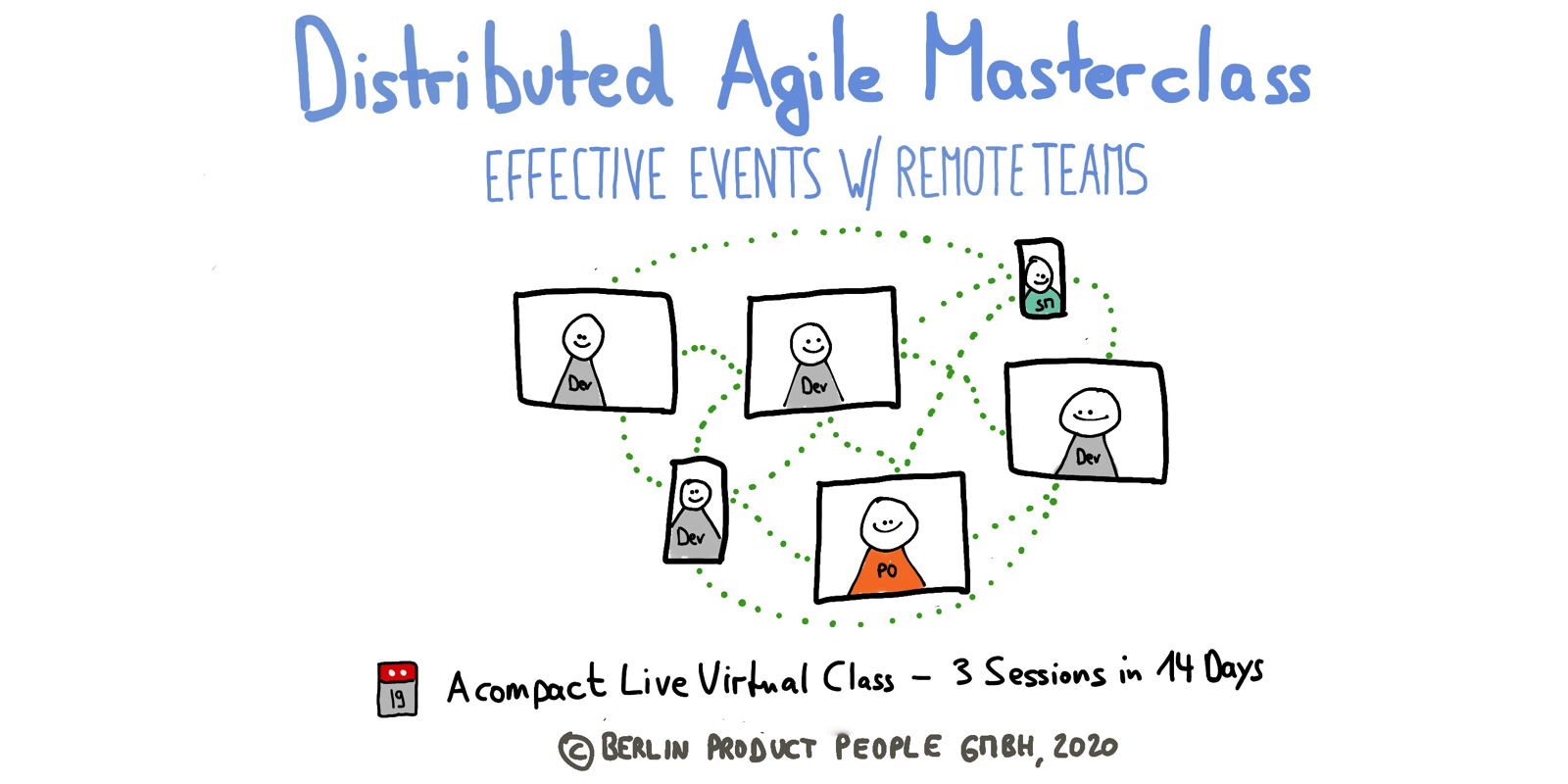Agile Has always Been about Face-to-Face — Now It Will Change
Agile has always been about colocation, about direct communication, physical boards, and all the other haptic and analog moments to create value in the digital realm. As a Professional Scrum Trainers, we strive to provide training classes without using Powerpoint or digital devices. Moreover, admittedly, I love index cards. And few peers consider a Remote Agile training a suitable alternative yet.
The most efficient and effective method of conveying information to and within a development team is face-to-face conversation.
Source: Principles behind the Agile Manifesto.
For the first time, though, this mental model is challenged, and remote Agile becomes a contender. To make your entry into this new world as smooth as possible, our live virtual class on Remote Agile training addresses practices and tools — such as virtual Liberating Structures — for Scrum Masters, Agile Coaches, project managers, and Product Owners on how to facilitate agile events with distributed teams effectively.

Who Shall Attend the Remote Agile Training?
This training is well suited for Scrum Masters, Agile Coaches, project managers, and Product Owners from all industries — from engineering to software to finance to transportation to pharmaceuticals to e-commerce, to name a few. The live virtual class will address issues that product and project leaders are facing daily:
- How to deal with being suddenly a distributed team?
- How can we preserve self-organization, namely agile events?
- How can we continue collaborating with stakeholders and customers?
- How can we engage participants who are not communicating face-to-face?
Professional Scrum Trainer Stefan Wolpers will facilitate the class. Stefan has extensive experience in facilitating powerful online events with distributed teams, practicing Liberating Structures as well as Training from the Back of the Room techniques.
Remote Agile — What Will the Live Virtual Class Address?
The Distributed Agile Training class is organized in three blocks of 2.5 hours within two weeks, addressing questions like:
- Which software applications support collective decision processes?
- What communication tools are available beyond Skype?
- Can I use remote Agile without spending hundreds of dollars or Euros?
- What gear is required to make work-from-home suitable?
- Can I run Liberating Structures in a distributed setting?
- How do I design events, meetings, and workshops to be engaging?
- How can I recreate a flow from one exercise to next that is engaging despite the distance between participants?
The training activities will comprise of interactive exploration, discussions, and exercises, for example, based on Liberating Structures, as well as short teaching blocks. The techniques that you will learn are also immediately applicable after the class in your team environment.
What Will You Receive from the Remote Agile Training?
The Remote Agile live virtual class provides you with actionable insights, a script template to design your remote agile events as well as a workbook that can easily be reused. Additionally, you will also receive several ebooks from Stefan that provide proven hands-on tactics to excel in an agile environment. Also, you will be invited to the Hands-on Agile Slack Community — a vibrant community of over 7,000 agile peers from all over the world.
Your Trainer Stefan Wolpers
Meet your coach Stefan Wolpers. Stefan has more than 14 years of experience in agile product development. During this time, Stefan has been working as an agile coach, Scrum Master, or Product Owner in different organizations: from startups to a Google subsidiary to corporations.
Stefan is specializing in coaching agile practices for change, for example, agile software development with Scrum, LeSS, Kanban, and Lean Startup, as well as product management. He has served in senior leadership positions several times throughout his career. His agile coaching expertise focuses on scaling product delivery organizations of fast-growing, venture-capital funded startups, and transitioning existing product teams in established enterprise organizations.
Learn more about your Professional Scrum Trainer Stefan Wolpers.
